Comprehensive Backup Power System Installations
Installing a backup generator provides reliable power during outages, ensuring continuous operation of essential household systems. It enhances safety, comfort, and convenience by maintaining electricity when the grid is disrupted. Proper installation involves careful assessment of power needs, site preparation, and adherence to safety standards to ensure optimal performance and longevity.
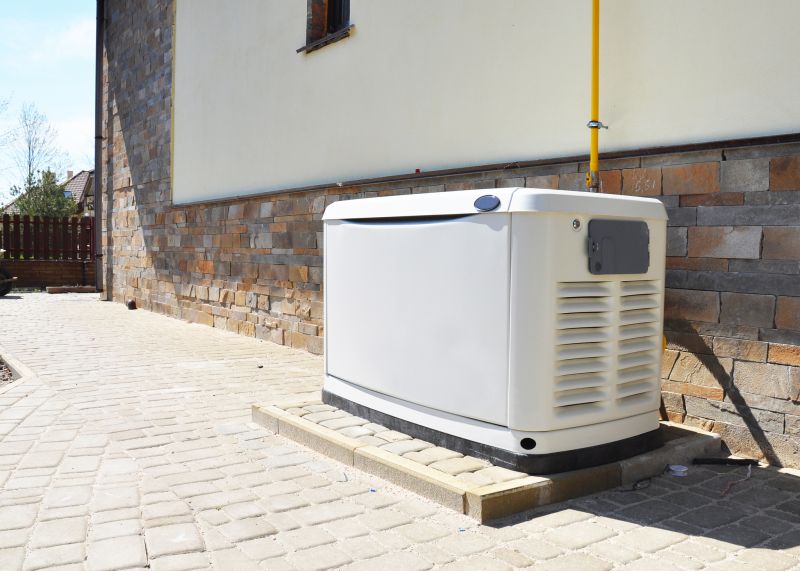
A home equipped with a backup generator ensures uninterrupted power supply during outages, supporting appliances and security systems.
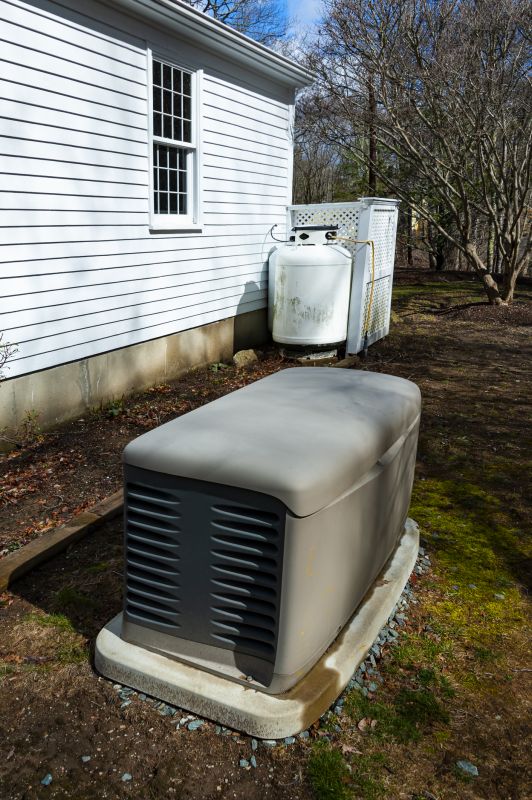
The installation process begins with selecting an appropriate location that allows for safe operation and easy maintenance.
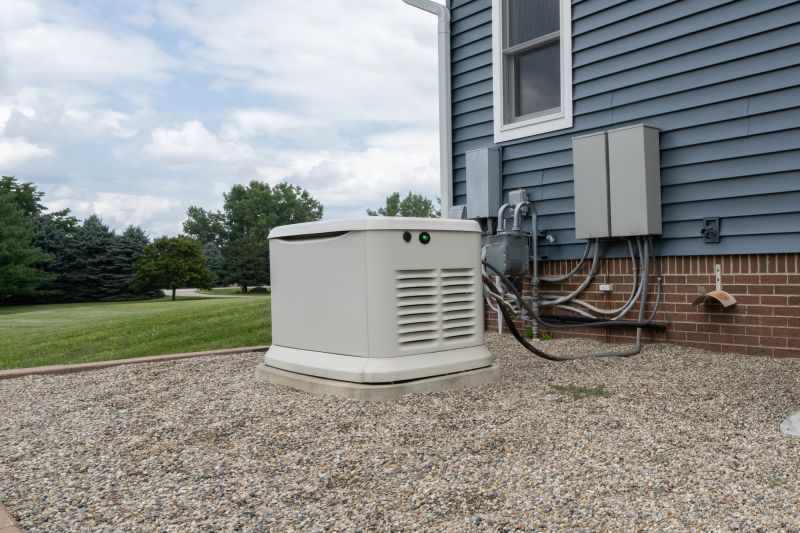
A transfer switch is installed to seamlessly switch between grid power and backup power, enhancing safety and convenience.
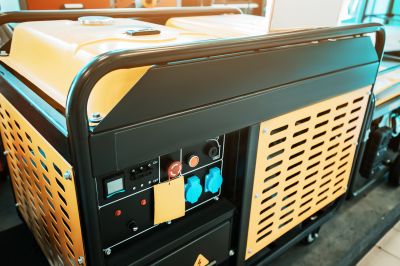
Modern control panels allow for easy operation and monitoring of the backup generator, ensuring readiness when needed.
The process of installing a backup generator typically involves an initial site assessment to determine the appropriate size and placement. Following this, the installation includes securing the generator, connecting fuel sources, and integrating electrical systems with the home's electrical panel. The entire process generally takes between one to three days, depending on the complexity of the setup and site conditions. Proper installation ensures the generator operates efficiently and safely, providing peace of mind during power outages.
Having a backup generator minimizes disruptions caused by power outages, safeguarding home security, preserving food, and maintaining comfort.
Generators provide reliable power, reducing risks associated with power loss, such as spoiled food or compromised security systems.
Installing a backup generator can enhance the value of a residential property by offering added reliability and convenience.
Statistics show that homes with backup generators experience fewer disruptions during outages, with many outages lasting several hours or more. Installing a generator can significantly reduce downtime, ensuring essential systems remain operational. Additionally, advancements in generator technology have improved efficiency, noise levels, and ease of use, making them a practical investment for residential properties.
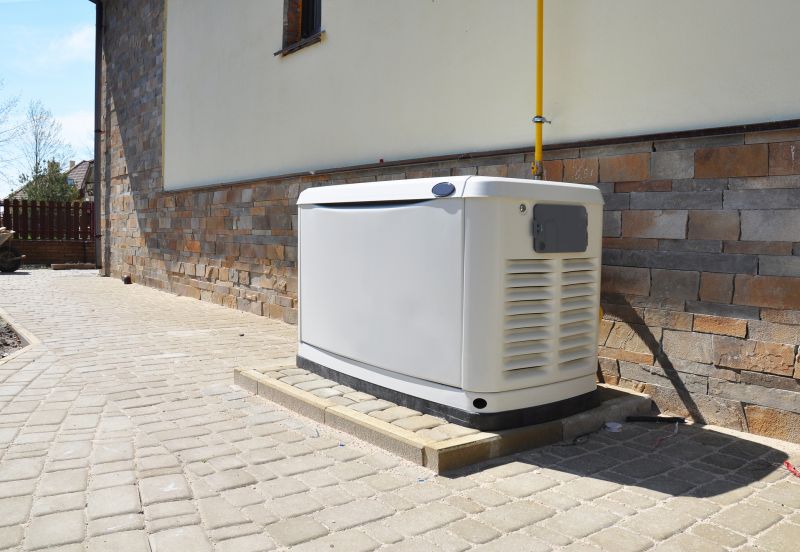
A home exterior showcasing a backup generator designed for residential use, blending with the property aesthetic.
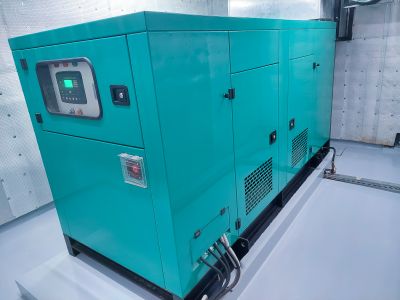
A close-up of a user-friendly control panel for managing backup generator functions.
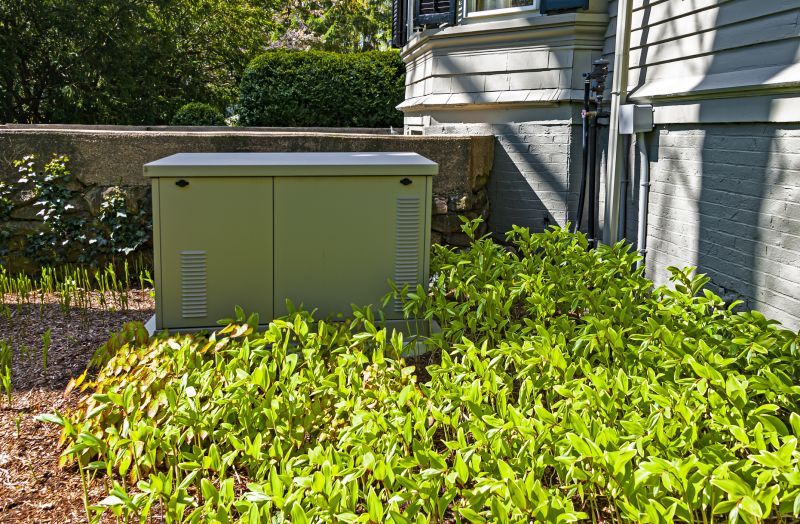
A residential backyard with a backup generator installed for reliable power during outages.
Choosing the right backup generator involves evaluating power requirements, fuel type options, and installation location. Proper sizing ensures the generator can support essential appliances and systems without overloading. Site preparation includes leveling the ground, installing a concrete pad, and ensuring adequate ventilation and clearance. Professional installation guarantees compliance with safety standards and optimal performance, providing long-term reliability.
For homeowners seeking to enhance their home's resilience against power disruptions, installing a backup generator offers a dependable solution. It ensures continuous operation of critical systems, reduces the risk of food spoilage, and maintains security. The investment in a professionally installed backup generator provides peace of mind, knowing that power will be available when needed most.
Interested in securing a reliable backup power source? Fill out the quick contact form to receive a personalized quote for backup generator installation services. A professional assessment can help determine the best solution tailored to specific power needs and property conditions.
